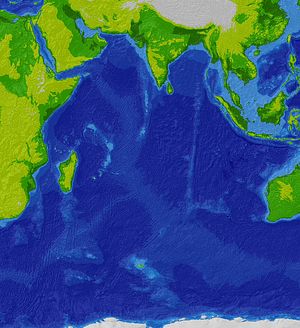Earlier this month, Male, the capital city of the Maldives and home to some 100,000 people, faced an acute crisis when a fire at the city’s sole desalination plant left the city’s denizens without access to safe drinking water. The government immediately declared a state of crisis. India, the closest large state to the Maldives and self-professed guarantor of security in the Indian Ocean, responded with alacrity and competency. The Maldives water case should underscore the sort of preparedness in maritime assistance that India should aspire to. As I wrote earlier this year in The Diplomat, if New Delhi is to truly live up to its own ambitions of being the Indian Ocean’s maritime guardian, it will have to lead by example, both bilaterally and multilaterally.
The Maldives example, in my view, is an example of India demonstrating its value as a regional leader in the Indian Ocean. It was the first major state to react to pleas for assistance from the Maldives government. Initial reports suggested direct communication between the office of the Indian prime minister and the Maldives government. The Maldives, despite being a small island nation and not a major presence on India’s regional diplomacy radar, received the direct attention of both Indian Prime Minister Narendra Modi and his foreign minister, Sushma Swaraj.
Following the rhetorical assurances of the Indian government that the Maldives would have its “full support,” the Indian Navy delivered bottled water within half-a-day of the Maldives’ government’s pleas for assistance. India additionally sent technical experts to aid in the repair and restoration of the desalination and sewage treatment facility. India also provided ship-based desalination plants to alleviate the immediate effects of the crisis. China responded shortly after India, dispatching its own assistance. Nevertheless, India’s swift response set a positive example for how India should aspire to lead in the Indian Ocean — its own naval backyard.
Additionally, a week later, the Indian government announced that it was ready to offer Male a second desalination plant to help avert future crises of this nature and reduce the country’s capital’s dependency on a single desalination plant. An official Indian Ministry of External Affairs statement, however, indicated that Male would have to pursue that proposal to make it a reality. The statement noted that “India, as a matter of principle, does not impose or suggest projects to any country either near abroad or far abroad, unlike some countries that undertake development projects in various parts of the world out of [their] own volition. We purely go by the suggestions and needs of the local government.”
As Indian strategists worry about both real and perceived inroads being made by Beijing into the Indian Ocean, it can only be in New Delhi’s interests to solidify its status as the region’s preeminent naval power by serving as the Indian Ocean’s first responder. Ten years ago, India demonstrated a similar response when the 2004 tsunami hit the vulnerable coasts of Sri Lanka and Maldives. New Delhi’s efforts to acquire and develop the latest and greatest naval hardware are all fine and good, but the benefits of being perceived as an amicable first responder should not be understated.

































